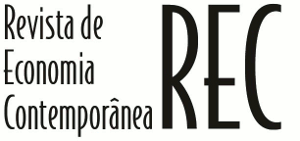EC 102/2019 (BRASIL, 2019b)BRASIL. Emenda Constitucional nº 102/2019. Dá nova redação ao art. 20 da Constituição Federal e altera o art. 165 da Constituição Federal e o art. 107 do Ato das Disposições Constitucionais Transitórias. Diário Oficial da União, p. 1, 27 set. 2019b. Disponível em: Disponível em: https://www.planalto.gov.br/ccivil_03/constituicao/emendas/emc/emc102.htm . Acesso em: 19 set. 2023.
https://www.planalto.gov.br/ccivil_03/co...
|
Retirar do teto recursos da seção onerosa do pré-sal transferidos a estados e municípios |
R$ 41 bilhões |
EC 106/2020 (BRASIL, 2020)BRASIL. Emenda Constitucional nº 106/2020. Institui regime extraordinário fiscal, financeiro e de contratações para enfrentamento de calamidade pública nacional decorrente de pandemia. Diário Oficial da União, p. 1, 08 maio 2020. Disponível em: Disponível em: https://legis.senado.leg.br/norma/32160992 . Acesso em: 19 set. 2023.
https://legis.senado.leg.br/norma/321609...
|
Orçamento de guerra: recursos extrateto de gastos para enfrentar a calamidade da pandemia da covid-19 |
R$ 503 bilhões |
EC 109/2021 (BRASIL, 2021a)BRASIL. Emenda Constitucional nº 109/2021. Altera os arts. 29-A, 37, 49, 84, 163, 165, 167, 168 e 169 da Constituição Federal e os arts. 101 e 109 do Ato das Disposições Constitucionais Transitórias; acrescenta à Constituição Federal os arts. 164-A, 167- A, 167-B, 167-C, 167-D, 167-E, 167-F e 167-G; revoga dispositivos do Ato das Disposições Constitucionais Transitórias e institui regras transitórias sobre redução de benefícios tributários; desvincula parcialmente o superávit financeiro de fundos públicos; e suspende condicionalidades para realização de despesas com concessão de auxílio emergencial residual para enfrentar as consequências sociais e econômicas da pandemia da Covid-19. Diário Oficial da União, p. 4, 16 mar. 2021a. Disponível em: Disponível em: https://www.planalto.gov.br/ccivil_03/constituicao/emendas/emc/emc109.htm . Acesso em: 19 set. 2023.
https://www.planalto.gov.br/ccivil_03/co...
|
PEC Emergencial: amplia os recursos destinados a pagamentos de transferências sociais |
R$ 44 bilhões |
EC 113/2021 (BRASIL, 2021b)BRASIL. Emenda Constitucional nº 113/2021. Altera a Constituição Federal e o Ato das Disposições Constitucionais Transitórias para estabelecer o novo regime de pagamentos de precatórios, modificar normas relativas ao Novo Regime Fiscal e autorizar o parcelamento de débitos previdenciários dos Municípios; e dá outras providências. Diário Oficial da União, p. 1, 09 dez. 2021b. Disponível em: Disponível em: https://legis.senado.leg.br/norma/35268195/publicacao/35270106 . Acesso em 19 set. 2023.
https://legis.senado.leg.br/norma/352681...
|
PEC dos Precatórios: retira parte das despesas em precatórios do teto e posterga o pagamento de outra parte |
R$ 81 bilhões |
PEC 1/2022 (BRASIL, 2022b)BRASIL. Senador Federal. Proposta de Emenda à Constituição nº 1/2022. Altera a Emenda Constitucional nº 109, de 15 de março de 2021, para dispor sobre a concessão temporária de auxílio diesel a caminhoneiros autônomos, de subsídio para aquisição de gás liquefeito de petróleo pelas famílias de baixa renda brasileiras e de repasse de recursos da União com vistas a garantir a mobilidade urbana dos idosos, mediante a utilização dos serviços de transporte público coletivo, e autorizar a União, os Estados, o Distrito Federal e os Municípios a reduzirem os tributos sobre os preços de diesel, biodiesel, gás e energia elétrica, bem como outros tributos de caráter extrafiscal. Brasília, DF: Senado Federal, 2022b. Disponível em: Disponível em: https://www25.senado.leg.br/web/atividade/materias/-/materia/151585 . Acesso em: 19 set. 2023.
https://www25.senado.leg.br/web/atividad...
|
PEC Kamikaze: amplia os benefícios sociais para o período próximo à eleição |
R$ 41 bilhões |
EC 126/2022BRASIL. Emenda Constitucional nº 126/2022. Altera a Constituição Federal, para dispor sobre as emendas individuais ao projeto de lei orçamentária, e o Ato das Disposições Constitucionais Transitórias para excluir despesas dos limites previstos no art. 107; define regras para a transição da Presidência da República aplicáveis à Lei Orçamentária de 2023; e dá outras providências. Diário Oficial da União, p. 18, 22 dez. 2022a. Disponível em: Disponível em: https://legis.senado.leg.br/norma/36621395/publicacao/36631160 . Acesso em: 19 set. 2023.
https://legis.senado.leg.br/norma/366213...
(BRASIL, 2022b)BRASIL. Senador Federal. Proposta de Emenda à Constituição nº 1/2022. Altera a Emenda Constitucional nº 109, de 15 de março de 2021, para dispor sobre a concessão temporária de auxílio diesel a caminhoneiros autônomos, de subsídio para aquisição de gás liquefeito de petróleo pelas famílias de baixa renda brasileiras e de repasse de recursos da União com vistas a garantir a mobilidade urbana dos idosos, mediante a utilização dos serviços de transporte público coletivo, e autorizar a União, os Estados, o Distrito Federal e os Municípios a reduzirem os tributos sobre os preços de diesel, biodiesel, gás e energia elétrica, bem como outros tributos de caráter extrafiscal. Brasília, DF: Senado Federal, 2022b. Disponível em: Disponível em: https://www25.senado.leg.br/web/atividade/materias/-/materia/151585 . Acesso em: 19 set. 2023.
https://www25.senado.leg.br/web/atividad...
|
PEC de Transição: cria recursos extrateto para o exercício de 2023, o primeiro da legislatura eleita |
R$ 168 bilhões |
| Seis PECs |
Impacto fiscal total |
R$ 878 bilhões |

 Thumbnail
Thumbnail
 Thumbnail
Thumbnail
 Thumbnail
Thumbnail
 Nota: Eixo vertical: resultado primário; eixo horizontal: DBGG (em % PIB).Fonte: Elaboração nossa com base em dados do Banco Central do Brasil
Nota: Eixo vertical: resultado primário; eixo horizontal: DBGG (em % PIB).Fonte: Elaboração nossa com base em dados do Banco Central do Brasil  Fonte: Elaboração nossa.
Fonte: Elaboração nossa.
 Nota:
Nota: